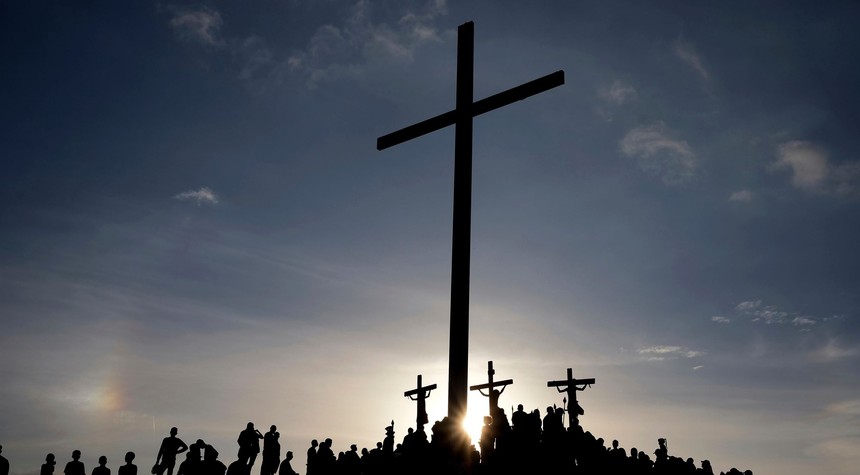Good Friday and Passover: Remembering Freedom
Good Friday and Passover:
Remembering Freedom

This weekend is the holiest weekend of the year for Christians and Jews alike all over the world.
For Christians, it’s the weekend we commemorate the crucifixion and celebrate the resurrection of Jesus of Nazareth, the Son of God. Jewish people celebrate the beginning of the seven-day festival of Passover, remembering how God freed the Hebrews from the bondage of slavery in Egypt.
Both days are pivotal moments in the Bible, and I’ve always been fascinated by the way God ties both testaments together to tell one big story about redemption and freedom.
A few years ago, I wrote a Communion meditation for an event where a group of friends worshiped and celebrated the Lord’s Supper together. I’d like to share it here because I think it ties together the remembrance of freedom from bondage that both Passover and Good Friday represent.
The Hebrews had had enough of the yoke of slavery. Gone were the days of Joseph and the special relationship the Hebrews had with the royal leadership of Egypt, and in its place was the relationship of slaves to their master. The Lord had raised up a deliverer for His people — one of their own, yet raised in the finery of the palace along the Nile.
But Pharaoh didn’t listen — in fact, God hardened his heart. Every request and each demand came along with a disgusting plague that shook Egypt to its core, but time and again, Pharaoh said no. It turns out God was setting the stage for the most dramatic plague of all.
Through Moses, the Lord told His people (in Exodus 11): “About midnight I will go out in the midst of Egypt, and every firstborn in the land of Egypt shall die, from the firstborn of Pharaoh who sits on his throne, even to the firstborn of the slave girl who is behind the handmill, and all the firstborn of the cattle. There shall be a great cry throughout all the land of Egypt, such as there has never been, nor ever will be again. But not a dog shall growl against any of the people of Israel, either man or beast, that you may know that the Lord makes a distinction between Egypt and Israel.”
There would be a signal: the Hebrews were to sacrifice an unblemished lamb and paint its blood upon the doorframes of the house — then they were to prepare to be on the move! God passed over Egypt and destroyed the firstborn of man and beast, but He saved the Hebrews because they had obeyed Him. Every firstborn in a family that had painted the blood on the doorframes survived. This event was to become a festival the Jewish people would remember every year forever — the Passover.
Jesus and His disciples celebrated the Passover meal. In that upper room, they followed the age-old traditions of the Passover Seder. But as Jesus led His inner circle through the Seder — after having demonstrated true servanthood by washing their feet — He added a whole new dimension to the redeeming story of the Passover.
From Matthew 26: “Now as they were eating, Jesus took bread, and after blessing it broke it and gave it to the disciples, and said, ‘Take, eat; this is my body.’ And he took a cup, and when he had given thanks he gave it to them, saying, ‘Drink of it, all of you, for this is my blood of the covenant, which is poured out for many for the forgiveness of sins. I tell you I will not drink again of this fruit of the vine until that day when I drink it new with you in my Father’s kingdom.’
Hours later, Jesus would hang on a cross, dying the gruesome death of a criminal. Days later, he would emerge from the tomb triumphant over death. Jesus would become the true Passover Lamb, dying once and for all to sin for those who would call on His name.
This weekend, billions of Christians and Jews the world over will remember the day that God rescued His people from physical bondage as well as the day when God sent His Son to rescue all of those who call upon His name from the spiritual bondage of sin. Some Christians will celebrate next weekend instead, but no matter the day, the sentiment is the same.
For those of you who are celebrating this weekend (or next), may your weekend be filled with gratitude for the freedom that God grants to His people.




Post a Comment